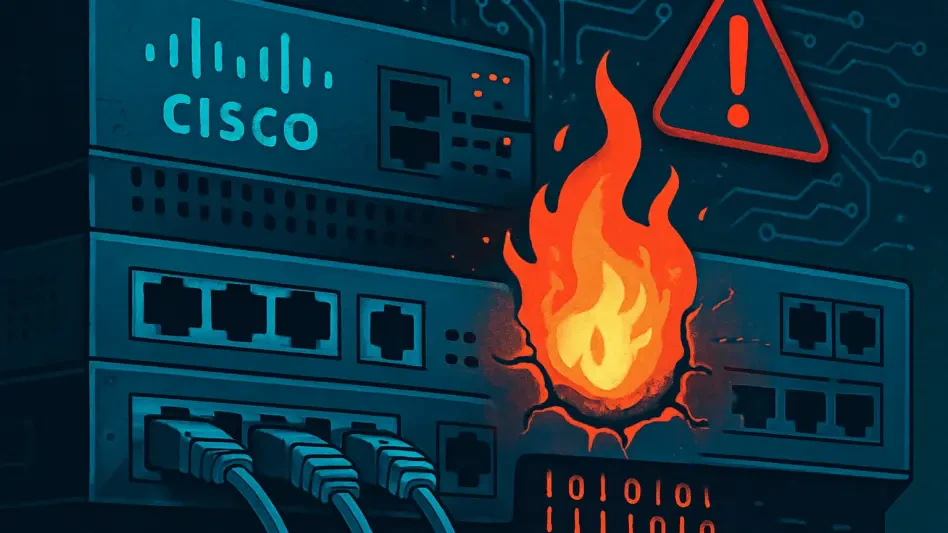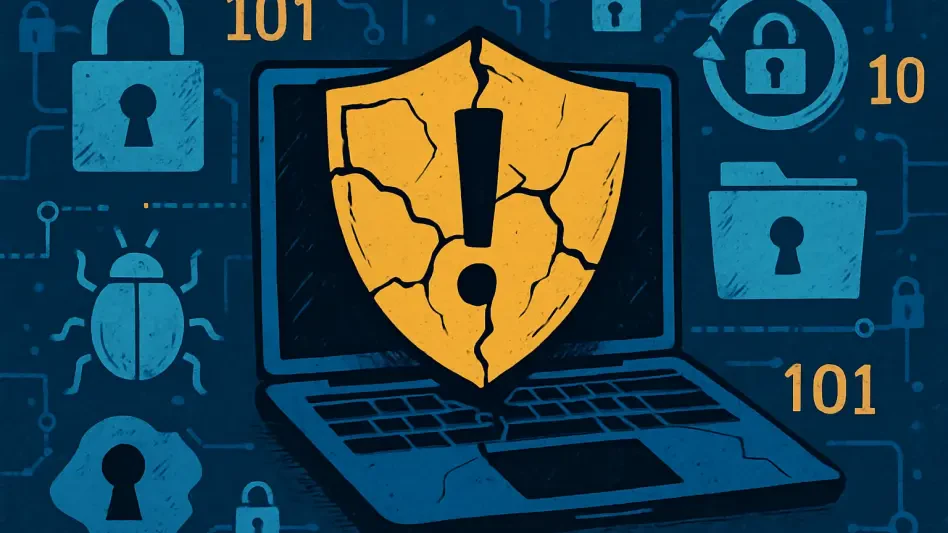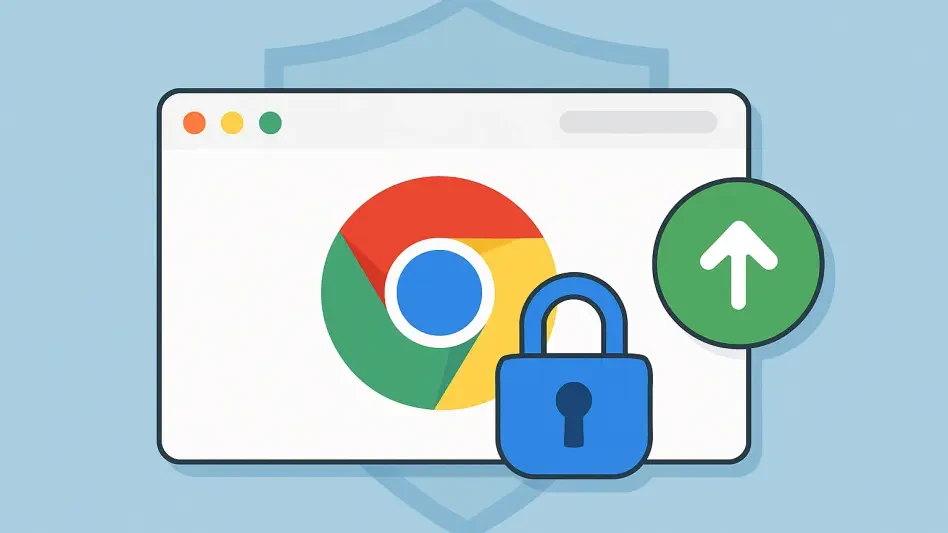In a rapidly evolving digital landscape, staying updated with the latest security patches is not just a matter of convenience but a critical aspect of safeguarding personal data and maintaining privacy. As cyber threats become increasingly sophisticated, the importance of regular updates to software such as Google’s Chrome browser becomes paramount. This urgency is particularly highlighted by recent cyber espionage activities attributed to Russian state actors, bringing to light the ever-present dangers lurking in the online environment.
The Urgency of Browser Security
Chrome updates are integral to maintaining security against emerging threats. The discovery of zero-day vulnerabilities, such as CVE-2025-2783, underscores the importance of these updates. Specifically, this vulnerability, which was found in Chrome’s Mojo framework, allowed malicious actors to bypass security measures and execute arbitrary code. The CVE-2025-2783 flaw’s discovery and subsequent exploitation made it imperative for users to update their browsers promptly. These zero-day vulnerabilities are particularly dangerous because they are unknown to the software developers until they are discovered by external entities or are actively exploited.
The vulnerability permitted attackers to bypass the Chrome browser’s sandbox protection, a security mechanism intended to isolate processes running within the browser to prevent malware from affecting the wider system. Once bypassed, the system becomes exposed to various malicious attacks, compromising the user’s privacy and security. Such an exploit’s sophisticated nature, discovered by Kaspersky, highlighted the critical need for quick action and underscored how integral browser updates are to maintain a high level of security in the face of evolving cyber threats.
The Role of Advanced Persistent Threats (APTs)
State-sponsored hacking, particularly from Russian entities, poses a significant threat to global cybersecurity. These advanced persistent threats (APTs) employ sophisticated techniques to infiltrate systems and gather valuable intelligence. The recent exploit underscores the strategic importance of maintaining up-to-date security measures to prevent such incursions. Understanding the geopolitical context of these cyber threats offers insight into the persistent nature of these attacks. APT groups, often with state backing, have the resources and technical expertise required to conduct prolonged and targeted operations, aiming to obtain high-value intelligence.
The geopolitical implications are profound; security breaches enabled by such vulnerabilities can be used as tools for geopolitical maneuvering, apart from their financial implications. The association with Russian espionage activities adds a layer of complexity to these cyber threats. The long-term impact of such sophisticated attacks emphasizes the importance of ongoing vigilance and robust security measures that need to be updated continually to withstand the latest methods employed by these APT groups.
The Mechanics of the Zero-Day Exploit
Zero-day vulnerabilities are exceptionally dangerous because they are unknown to the software developers until they are discovered and subsequently exploited. The CVE-2025-2783 flaw was actively used in targeted phishing attacks, making it imperative to apply security updates promptly. The vulnerability allowed phishing emails containing malicious links to compromise systems with minimal user interaction, showcasing the advanced nature of modern cyber espionage tactics. Simply clicking a link, without any additional user action, was sufficient to compromise the system, illustrating how sophisticated and insidious these attacks can be.
The exploit, termed “Operation ForumTroll” by Kaspersky, targeted media outlets, educational institutions, and government entities within Russia. These highly personalized phishing emails were designed to maximize the likelihood of being clicked by their recipients. Such a strategy demonstrates not only the technical prowess of the attackers but also their understanding of human behavior and system vulnerabilities. It highlights the importance of comprehensive security measures that go beyond mere technical fixes to encompass user awareness and vigilance.
Google’s Swift Response
Google demonstrated its commitment to user security by swiftly releasing an emergency Chrome update (version 134.0.6998.177/.178). This rapid response highlights the importance of collaboration with cybersecurity firms like Kaspersky, who first identified the exploit. Google’s phased rollout approach for the update aims to ensure stability across various platforms, showcasing its strategic handling of widespread vulnerabilities to minimize disruption while maximizing security.
This response was not just about addressing the immediate threat but also about instilling confidence in users about the reliability and security of the Chrome browser. The update’s phased rollout is a meticulous process to ensure that the patch’s deployment does not inadvertently introduce new issues, maintaining the browser’s overall stability while rectifying security flaws. Such quick action is essential in a landscape where the speed of response can make the difference between mitigating a cyber threat and allowing it to proliferate.
Impact on Chromium-based Browsers
The zero-day vulnerability affecting Chrome extends to all Chromium-based browsers, including Microsoft Edge, Brave, Opera, and Vivaldi. This breadth of impact places a shared responsibility on developers of these browsers to implement Google’s patches promptly. Users of these browsers need to remain vigilant and proactive in applying updates to ensure continued protection against such vulnerabilities, thereby extending the scope of necessary security measures beyond just Chrome.
The decentralized nature of Chromium’s development means that each browser developer must act swiftly to incorporate the security patches. This scenario emphasizes the importance of cross-platform awareness and cooperation in the tech industry. Users, too, must ensure that they are not only reliant on automatic updates but also actively checking for the latest patches and security updates. Such vigilance is necessary to maintain a secure browsing environment, irrespective of the browser one uses.
Maintaining Cyber Hygiene
Regular updates are a fundamental aspect of basic cyber hygiene. Users should prioritize these updates to protect themselves from emerging threats and must be cautious of phishing attempts often used to exploit these vulnerabilities. Being aware of the current cybersecurity landscape and adopting best practices can significantly enhance an individual’s resilience against potential threats. This involves exercising caution when encountering unsolicited emails and ensuring that all software is up-to-date.
In addition to technological defenses, user education remains a critical component in combating cyber threats. Awareness of common techniques used in phishing and other cyber-attacks can help users avoid falling victim to these schemes. This incident underscores the importance of a two-pronged approach: leveraging the latest technological safeguards while concurrently fostering an informed and vigilant user base. Cyber hygiene must be seen as a continuous, proactive practice rather than a one-time effort.
Collaborative Efforts in Cybersecurity
The seamless collaboration between Google and cybersecurity organizations like Kaspersky exemplifies the need for a concerted effort to combat cyber threats. This incident underscores the importance of real-time threat detection and prompt mitigation strategies. Continuous cooperation and information sharing among tech companies and cybersecurity experts are pivotal in staying ahead of state-sponsored cyberattacks and ensuring robust defensive measures are in place.
This cohesive effort demonstrates that effective cybersecurity is a communal responsibility. Only through concerted actions can the industry hope to preemptively address vulnerabilities before they are widely exploited. Cybersecurity organizations play an essential role by identifying threats early and working with tech companies to develop appropriate patches. Their cooperation is fundamental in systematically dismantling the potential impact of cyber threats and ensuring the broader security of digital infrastructures globally.
A Call to Vigilance
In our fast-changing digital world, keeping up-to-date with the newest security patches is more than just a convenience; it’s critical for protecting personal data and maintaining privacy. With cyber threats growing more advanced, regularly updating software like Google’s Chrome browser is essential. The recent cyber espionage activities linked to Russian state actors underline the persistent dangers in the online environment. These threats are a stark reminder of why it is crucial to stay vigilant and ensure that all software, especially web browsers, are frequently updated with the latest security features. Regular updates not only help in plugging potential vulnerabilities but also enhance overall system performance and security. Staying proactive in updating your software can play a significant role in safeguarding against potential espionage and cyber-attacks, protecting both your personal and professional digital information.







